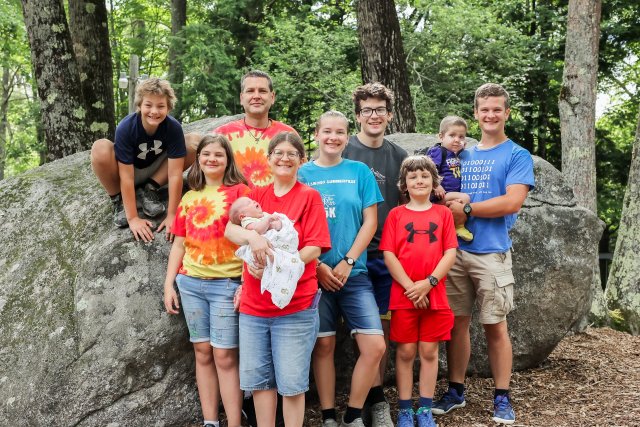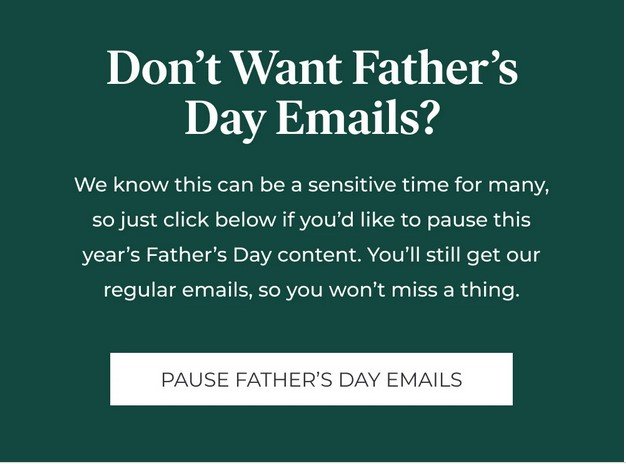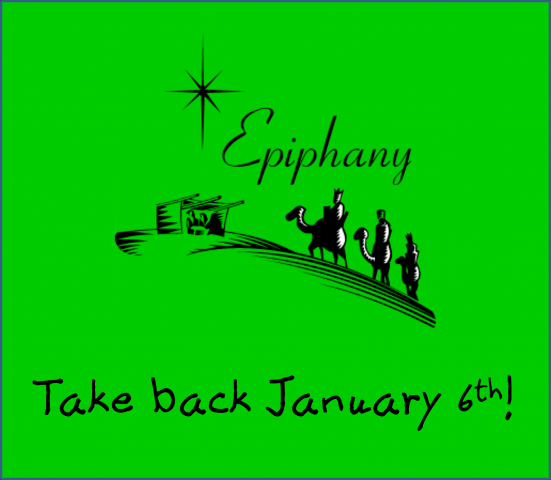I can't take credit for this, as it was inspired by something Bret Weinstein said in this DarkHorse Podcast (approximately 65 minutes in). But it's different enough that I can't make it a direct quotation.
It struck me this morning as both wise and widely applicable. As I've repeatedly said, we each have our part to do, and the results aren't up to us. But we can't know how close someone is to making a life-changing decision, and it would be good at the end of all things to discover that our own actions and attitudes have nudged people in a good direction, instead of hindering their progress.
Permalink | Read 917 times | Comments (1)
Category Random Musings: [first] [previous] [next] [newest] Here I Stand: [first] [previous] [next] [newest]
Don't be manipulated. Good advice, but very broad, and hard to follow. This post was inspired by what I have read about "bad actors"—AI bots or paid humans—attempting to sow discontent, anger, and hatred online. The Chinese and the Russians have both been accused of this, with what seems to be pretty convincing evidence, and I fear some of it is also homegrown.
My greatest concern is that Artificial Intelligence is rapidly advancing to the point where we can no longer trust our own eyes and ears, at least where online videos are concerned. It is possible to manipulate images and audio to make it appear that someone is saying something he or she never said. Think what political enemies could do with that! Everything from rigging elections to starting World War III. And you know those crazy spam blackmail threats that claim they recorded you doing "nasty things" in front of your computer? The ones you face with a grim smile and quickly delete because you know you never did whatever it is they claim? Imagine them including a video of you "actually" doing or saying what you did not? What if they show you a candidate for public office in that compromising position? Or your spouse, or your children. What about fake kidnappings? I could go on and on—my imagination is fertile and paranoid.
But that's not where I'm going in this post. AI's not quite there yet, and we have a clear and present danger in the here and now: Angry, profane, and hateful comments posted to articles, videos, and podcasts. Nasty online videos (especially the short form commonly seen on Tik-Tok and Facebook Reels) whose purpose (obvious or subtle) appears to be to stir up negative emotions. And that's just what I see every day; I know there's a lot more out there. It's hard not to have a visceral reaction that does no one any good, least of all ourselves.
And that, I'm afraid, is exactly the purpose of what is being posted. To make us angry; to make us suspicious of each other; to influence our reactions, our actions, our purchases, and our votes.
The best solution I've been able to come up with (and I have no idea how effective it might be, except with me) is this:
- Know your sources. Is this negativity coming from someone you actually know, in person, so that you are aware of the context? Is it from someone you know online only, but have had enough experience with over time to assess his general attitude, reliability, and track record? If not, keep your salt shaker near.
- When in doubt, if the content tempts you to react badly, assume the best: It's a bot or troll whose purpose is to make you angry; or a human tool too desperate for a job to consider its moral implications; or an ordinary human being who has been having a bad day/week/year (doesn't that happen to all of us?). In any case, make an effort not to fall into the trap.
- Avoid sources that usually make you react badly. Unfortunately, I don't think we can afford to avoid seeking information about what is happening in the world. One of the first rules of self-defense is to be aware of your surroundings. But we can be cautious. Even the sources I find most reliable can have nasty trolls in the comment section, so I mostly avoid reading the comments. I'm also trying to wean myself off of the Facebook Reels (mostly ported over from Tik-Tok or Instagram it seems). They can be fun, and funny, and sometimes usefully informative. But they are definitely addictive, and I've noticed that far too many of them are negative, even if humorous, leaving an aftertaste of fear, anger, disgust, and/or suspicion. Not good for the human psyche!
- Consider slowing down? I'm struggling with this one, because of the reality that so much of our information comes in video form these days. Unlike print, in which it is easy to skim for information, to skip over irrelevant sections, and to slow down and reread what is important, and which provides a much better information-to-time-spent ratio, the best one can do with video is to speed it up. I find that almost everything can be gleaned from a video just as well if it's taken in at 1.5x speed, sometimes even 2x. Porter's ears and brain can manage 2x almost all the time. This is a blessing when there is so much worth watching and so little time! However, here's what I'm struggling with: videos watched at high speeds tend to sound over-excited, even angry, when at normal speed they are not. And the human nervous system is designed to react automatically to such stimuli in a way that is probably not good for us if we are not actually in a position to either fight or flee. I don't have a satisfactory answer for this, but I figure it's at least worth being aware of.
- Remember that the people you interact with online are human beings, who work at their jobs, love their families, and want the best for their country, just as you do. Unless they're not, in which case it's even more important not to rise to the bait.
Be aware, be alert, do what is right in your own actions and reactions, and hope for the best. It's healthier for us all.
Permalink | Read 1092 times | Comments (0)
Category Hurricanes and Such: [first] [previous] [next] [newest] Health: [first] [previous] [next] [newest] Politics: [first] [previous] [next] [newest] Random Musings: [first] [previous] [next] [newest] Everyday Life: [first] [previous] [next] [newest] Social Media: [first] [previous] [next] [newest]
Permalink | Read 704 times | Comments (0)
Category Random Musings: [first] [previous] [next] [newest]
After dealing with the COVID-response-induced shortages and empty shelves, a lot of people mock and shame people who buy more than their immediate need's worth of a commodity, calling them hoarders, or (even more derisively) "Preppers." During a time of crisis and shortage, such an attitude is understandable.
In normal times, it is dead wrong.
People who buy extra toilet paper, or cans of soup, or bottles of water for storage rather than immediate consumption are not hoarding, they are wisely preparing for any interruption of the grocery supply chain, be it a hurricane, a pandemic, civil unrest, or some other disruption. As long as they buy their supplies when stocks are plentiful, they are doing no harm; rather, they are encouraging more production, and keeping normal supply mechanisms moving.
Plus, when a crisis comes, and the rest of the world is mobbing the grocery stores for water and toilet paper, those who have done even minor preparation in advance will be at home, not competing with anyone.
Here's an interesting interview with a guy who has studied crisis preparation for decades. I don't know him, don't know anything about him—but he's no fearmonger, despite taking the necessity of the job very seriously. He's calm, and reasonable, and worth listening to, if you have a spare hour.
Listening to this makes me miss the days when we lived in the Northeast, and had a cool basement. That would be a great place to store emergency supplies. Here, we'd have to store everything in our adequate but limited living area: we have no basement, and the garage, the attic, and anything outside are 'way too hot for most of the year (not to mention favorite places for critters to hang out).
On the other hand, we don't have to worry about freezing to death in winter weather. It's been a long time since we've routinely kept a stack of firewood!
Permalink | Read 1037 times | Comments (0)
Category Hurricanes and Such: [first] [previous] [next] [newest] Random Musings: [first] [previous] [next] [newest] Food: [first] [previous] [next] [newest] Here I Stand: [first] [previous] [next] [newest]
(Family still trumps politics.)
I recently spent several days with Grace and her family. It was SO GOOD to see her in person and in action.
There's a reason Christ said of children, "of such is the kingdom of heaven," and "whoever does not receive the kingdom of God like a child shall not enter it."
Grace has faith and trust as strong as any I have ever seen.
Her central line is covered by a dressing that needs to be changed periodically. I watched the process take place on our sun-drenched deck, complete with sterile gloves, masks, disinfectants, the whole nine yards. And what did Grace do? She lay flat on her back with her arms over her head, absolutely stock still, until the procedure was finished. This is the same procedure the hospital assumed would take five assistants to hold her down!
It's not as if she's a passive patient. She knows, for example, exactly how the daily procedure that flushes her lines must go, and doesn't trust the strange nurses who do it when she is in the hospital. When they do not follow the procedure, she does not hesitate to let them know.
But Grace trusts her parents, and relaxes patiently when she knows they're in charge.
What's more, she quietly accepts the necessary restrictions on her life, all the while living as normal a life as possible. (Well, mostly quietly. She IS a two-year-old.)
That small backpack contains the nutrition and whatever else goes into her stomach via her NG tube, plus the pump and associated controls. She's small, and it's heavy, so she'll more often be found dragging it along the ground instead of wearing it on her back, but it goes everywhere with her, except at night. She takes it as a matter of course, and is adept at manoeuvring all the associated lines as she goes about her normal play. (Not to mention that she is aware when the machine's beeping alerts her to a situation that needs attention, and sometimes even knows what must be done to fix the problem.)
Grace trusts her family (siblings as well as parents), and does the best she can to live a good life within the parameters that have been given to her. That's faith. (Her sister Faith is another one of my heroes.)
This faith and heroism is true of the rest of her family as well. When cancer comes to visit a family, it brings with it a host of opportunities for heroic behavior. Here's a great picture of the family at camp recently.
Those of you who enjoy puzzles might appreciate zooming in on the shirt that Jonathan (at the right, holding Grace) is wearing. Just to set the bar for you, our 14-year-old grandson, visiting from the other side of the Atlantic, figured it out in a matter of seconds. Don't let that deter you; most people take a lot longer than that, if they get it at all. (Though I will brag that I wasn't much behind him.)
In case you didn't catch it, a very important part of our vacation was getting the New Hampshire and Swiss cousins together for the first time in seven years. You won't see as many photos of that, as the latter folks are understandably more photo- and social media-shy, but it was such a great time, and they played together so joyfully as to do my heart a world of good!
For a complete Grace update, including a couple more adorable pictures and a cool story about Faith's soccer team, see the Heather's Day +170 post here.
Permalink | Read 1247 times | Comments (3)
Category Random Musings: [first] [previous] [next] [newest] Everyday Life: [first] [previous] [next] [newest] Pray for Grace: [first] [previous] [next] [newest]
I can't wait to see one of these new signs the next time we return to Florida by car.
I'd like to add, "Let's Keep It Free" to the sign, because freedom is a fragile thing. (Quoting Ronald Reagan, though I'm sure it wasn't original with him.)
I've always been ambivalent about electric cars. On the consumer end, eliminating exhaust fumes and engine noise is attractive, especially in cities, though I'm not convinced that electric cars are all that environmentally friendly when you look at the big picture. The electricity has to be produced somewhere, and while large-scale power generation and distribution might be more efficient than having an engine in every car, that doesn't make it harmless. It is beyond me why California—which already suffers from lack of what it takes to produce enough power for its popuation—is pushing to ban non-electric cars. Then there's the problem of the batteries that drive these cars: expensive to produce, requiring scarce resources, relatively short-lived, and difficult to recycle—I'm not convinced they aren't worse than the problem they are trying to solve. I don't think we know enough about it at this point, and I can't see burning our bridges until we know the cure isn't worse than the disease. We've had enough of that approach!
Be that as it may, I can still see the attraction, for the individual, of a small electric car for tooling around town. Not that I forsee living long enough for an electric car to fit into our budget. Even used they are ridiculously expensive. But that doesn't mean I'm not open to the idea.
Or rather, I was open. Having had an electric rental car forced upon us during our recent time in Maryland, you'd pretty much have to give us an electric car to make me want one at this point.
That's not to say that the computer nerd in me didn't find it exciting to read our Chevy Bolt's instruction manual. So many amazing features! It was a lot like getting a new computer, and upgrading to Windows 11 from Windows 3.1. Only no one ever expected me to learn a new computer operating system at highway speeds with our lives, and those of two grandchildren, depending on it. Fortunately, Porter—who had lots of experience with strange rental cars during his IBM travelling years, though none were electric—did a fine job. I wasn't even driving, but the flurry of on-the-fly questions ("What does that light mean? What does this button do? Where on earth is the shift lever? (There wasn't one.) How do I read these dispay heiroglyphics?") and the rapid flipping through the very thick manual on my part, hoping for answers, about did me in. I'm not against new technology, but prefer to get acquainted with it slowly.
That, however, was the least of my complaints. I was not at all happy with the 200-mile range of the car. Fortunately, all the wedding venues were reasonably close to the hotel, so we managed to get back to the airport without having to give it a recharge, but that doesn't mean it wasn't stressful. Especially since the battery lost about 20 miles of reserve just sitting in the parking garage overnight. It's not as if we could have just zipped into a gas station for 5 minutes to "fill the tank." I have run out of gas once in my life, and that's an experience I don't wish to repeat.
I know, theoretically there are places available for recharging electric vehicles. Even our local botanical gardens has a couple of spots in its parking lot where you can charge while you admire the plants. But we were in a strange city, and in all our driving never saw such a place to pull over and fill up. Google indicated that there were some in the area, but we never saw them. Oh, wait—even if we'd found such a place, we didn't have the time it would have taken for a recharge.
When we picked up the car, the Avis agent had brushed off our concern, with "any decent hotel will have plenty of charging stations." True, our otherwise lovely Hyatt Regency had a good number of such stations—but every single one of them was out of order, so we couldn't recharge overnight.
We survived the experience—Porter even enjoyed braking with the turn signal. That's not quite an accurate description, but it's what it looked like. There was also a foot pedal brake, but the hand brake somehow shunted power back into the battery, which was cool. But I don't quite see the usefulness of an electric vehicle if you want to travel more than 200 miles away from home; 100 miles if it's a day trip.
Maybe if we needed a second car just for short trips, an electric one would be nice. But for now, I hope we can enjoy for many more years our 11-year-old gasoline-powered car that seats eight, has a range of over 400 miles, and a tank that can be fully replenished in under 10 minutes. Okay, 30 minutes if the stop is at Buc-ee's.
Permalink | Read 939 times | Comments (3)
Category Random Musings: [first] [previous] [next] [newest]
I've done a lot of business with Shutterfly in the past, which is why I'm still on their mailing list despite all my projects having been relegated to the back burner for quite a while, due to time and priority issues. This was in an e-mail that come about a month ago.
On its face, this could be thought of as simply a considerate move on the part of the company. The fact is, however, that Father's Day is the only time for which I've seen such an offer. For Mother's Day, Valentine's Day, Christmas, "Pride Month," or any other occasion about which someone might take offense, the (reasonable) expectation seems to be that customers will understand that Shutterfly is happy to promote any occasion that causes people to spend money, and exercise their option to participate, or not.
What is so especially offensive about fathers? Every single person who is or has ever been on the face of this earth has a father. You can't get more inclusive than that. You may not like your father, he may have been abusive, he may have abandoned you. Perhaps you are grieving because your own father has died, or because a child of whom you are the father has died, or because you want desperately to be a father yourself but are not, or because you are estranged from your own children.
However, the simple, inescapable, biological fact is that you have a father. Without him, you would be literally nothing.
(Will that always be the case? I've seen enough changes over the past seven decades to rule out nothing. What am I saying? I've seen enough in the past four years to be skeptical of anything that begins, "It can't happen...". If you, yourself, are a clone, or the product of some manipulation that didn't start off with an egg and a sperm, let me know. I don't promise to believe you, but you might have an interesting story.)
Honor Your Father made the top-10 list of imperitives, along with Don't Murder, Don't Steal, Be Faithful to Your Spouse, and other rules that make life worth living.
It is popular, for reasons complex and no doubt at heart diabolical, to diminish the importance of men in general and fathers in particular. Don't fall for it.
Honor your father.
Permalink | Read 1124 times | Comments (5)
Category Random Musings: [first] [previous] [next] [newest]
I have nothing to improve on the Memorial Day posts I have made in the past, except this thought that has been on my mind lately.
Perhaps the best way we can honor those who stood bravely "between their lov'd home and the war's desolation" is to stop taking for granted the freedom they gave their lives to protect. Let's not defile their sacrifices by treating lightly the present-day assaults on our sacred liberty and Constitutional rights, but work to preserve what was gained at so great a cost.
Oh! thus be it ever, when free men shall stand
Between their loved home and the war's desolation!
Blest with vict'ry and peace, may the heav'n-rescued land
Praise the Pow'r that hath made and preserved us a nation.
Then conquer we must, when our cause it is just,
And this be our motto: "In God is our trust."
And the star-spangled banner in triumph shall wave
O'er the land of the free and the home of the brave!
The U.S. News & World Report has come out with another ranking, this time of U.S. states, based on factors such as education, economy, public infrastructure, safety and the environment. I don't usually care much for such lists, based as they often are on factors opposite to what I would like (e.g. "family-friendly" countries being those with free daycare, instead of economies that allow families to live on one income). Sometimes they might even be outright harmful, which this one could be considered.
Why? Because New Hampshire is ranked #2, and Florida #9. What's more, Florida ranks #1 in the categories of Education and Economy. (New Hampshire is #1 in Crime, i.e. lack thereof.)
That's a good thing, you say? Well, yes and no. But neither New Hampshire nor Florida needs some magazine to tell us we have it good. We know that, and I'm not at all sure we should want to let those from other states in on the secret. I used to argue with the many people who say, "I could never live in Florida; it's too hot and too buggy; there are hurricanes and alligators." Now I don't bother. We love to have people visit—tourism is a big part of our economy—but we don't need any more permanent residents. You voted for the policies that made your state unliveable; don't come here and mess up ours. As the New Hampshire bumper sticker says, "Welcome to New Hampshire; Don't Mass it up."
(In case you're curious, the #1 state overall is Utah.)
Permalink | Read 1038 times | Comments (2)
Category Random Musings: [first] [previous] [next] [newest]
You need to get out of your comfort zone.
How often have you heard that advice? Or given it?
It sounds good, as do most dangerous ideas that contain a bit of truth.
Doing hard things can lead to physical, mental, and spiritual growth. But it can also break you. Children grow best when we give them plenty of opportunity to stretch their abilities—not by subjecting them to the rack. That goes for adults, too.
Here's the thing: For many people, living ordinary, daily life is out of their comfort zone, and they get all the growth opportunities they need just making it through the day. Let me say that again.
For many, daily life is out of their comfort zone.
I guarantee that you know people for whom that is true. It may very well be true for you; if not all the time, at least on occasion. The catch is, none of us knows where someone else is in this. We have no idea how hard someone may be working to make it seem as if his life is easy—or even bearable. And that's okay. Life is hard, and growth comes out of the struggle. As long as we remember that it's not our job to push someone else out of his own comfort zone. I know a woman who learned to swim by being thrown out of a boat in the middle of a lake. A lake with alligators. She lived, but I don't recommend the method.
In my experience, when someone tells another person, "You need to get out of your comfort zone," he's less interested in helping that person grow than in getting a particular job done. And hoping that a combination of guilt and the prospect of personal growth will push the reluctant victim to accept. Don't do that.
Push yourself? That's great. Reaching, stretching, working hard, and overcoming difficulties can be good for you and for the world—and it usually feels fantastic (in the end; not always in the middle). But when someone else insists you need to get out of your comfort zone, take it with a grain of salt. Sometimes pain can indeed lead to gain, but it is more likely to lead to injury. And for sure, don't say such a thing to others.
Comfort zone? Comfort zone? Where does that idea come from, anyway? I'll take a poll: Who here are feeling relaxed and comfortable with their lives? Raise your hands. I didn't think so.
There's work to be done in this world, and duty calls us all. Difficult tasks and decisions come to us every day, nolens volens. This is not a call to shirk our responsibilities, but to know ourselves and to respect the needs of our fellow-strugglers.
Here's another observation from reading my father's journals, this one from April 1963.
About 11 a.m. I went out to the car to go out to the Research Lab and the car ('57 Ford) wouldn't start. It was not firing at all. I spent the better part of the lunch hour convincing myself there was no spark. Blackie (the guard at the Building 37 gate) called the man from the GE garage who diagnosed it as a bad condenser.
Since he was not in a position to make repairs, I called the AAA for the first time in years. On the telephone I told the girl that it was not a dead battery and that the trouble had been diagnosed as a bad capacitor. I had hoped this would at least forewarn the man who came, even though he would no doubt want to make his own diagnosis. So in about half an hour he showed up with the question, "What's the matter? Dead battery?"
All he would do was to diagnose the trouble as a bad coil and tow me somewhere. I had him tow me to Dorazio's service station where I left the car to get yet another diagnosis.
Fifty years later and customer service experiences don't look much different. Especially if you try to give them information or ask them to go off-script. After much phone time and several questionable attempts at a fix, a well-known bank is still sending us multiple copies of each e-mail, and they are not interested in hearing what we already know about the problem.
Permalink | Read 965 times | Comments (0)
Category Random Musings: [first] [previous] [next] [newest] Glimpses of the Past: [first] [previous] [next] [newest]
Looking over old medical records, something caught my eye: our left-handed child's first tooth was the lower-right central incisor, and our right-handed child's first tooth was the lower-left central incisor.
Two data points don't tell you much, so I expanded the question to those of our grandchildren for whom I had that data. This raised the sample size to nine.
|
Person |
Handedness |
First Tooth |
|
1 |
left |
lower right |
|
2 |
right |
lower left |
|
3 |
right |
lower left |
|
4 |
right |
lower right |
|
5 |
right |
lower left |
|
6 |
right |
lower left |
|
7 |
left |
lower right |
|
8 |
left |
lower right |
|
9 |
right |
lower left |
As you can see, in every case but #4, there is an inverse correlation between the side of first tooth eruption and handedness.
Nine is still a very small sample size, but it was enough to send me to the internet. Here's what a brief search unearthed.
- The writers of scientific papers need some serious help in their use of language.
- Some of them also appear to have a problem with arithmetic.
- Apparently, the idea of a correlation between first tooth eruption and handedness is indeed a thing, and not just my observation.
- It is true that there seems to be a statistically significant correlation between first tooth position and handedness.
- However, the correlation does not match my observations, since the researchers found it to be a direct correlation, rather than inverse.
- It's possible that our grandson Noah (#4) is the only normal one among us.
Well, that was a bit of fun, but in all seriousness, it's one more nail in the coffin of my faith in the reliability of our scientific publications. This is nothing knew; it began when I worked in a university medical research laboratory. (I have all of one published scientific paper to my name, though several others have my fingerprints on them.) There I observed first-hand the politics and good-ol'-boy networking that goes into getting a paper published. Subsequent years and experience have only made the situation more obvious.
In this case, I have neither the scientific nor the mathematical expertise to critique the science, nor do I want to spend much time trying to understand the papers. But it didn't take more than a few minutes of reading to catch some glaring errors.
Thanks to Automated Idiocy, scammers are getting more proficient. Do you remember when the e-mails informing you that you could gain access to a million-dollar inheritance, if you'd only send a small fee of $50 to someone in Nigeria, were easily distinguishable by their terrible spelling and grammar? Finding this kind of error in a scientific journal makes me want to send it to the spam folder.
Granted, the authors of the papers may not have English as their native language. And the errors in arithmetic may be simple typos. But how were these obvious faults not caught in peer review? And where were the editors? A journal is only as good as the papers it publishes, so it should be in their best interest to vet carefully what they choose to print.
Something doesn't add up here.
Permalink | Read 922 times | Comments (0)
Category Random Musings: [first] [previous] [next] [newest]
Books, sermons, and debates on the problem of unanswered petitionary prayer have been around for as long as people have been praying. To my simple mind, the answer boils down to this:
- A cosmic-vending-machine god would be a horror, speeding the world to hell even faster than we're already racing.
- Capricious gods are basically humans with superpowers—think ancient Greece and Rome—and can almost be dealt with: you try to keep them happy, you rejoice when they do what you ask, and you shrug your shoulders when they don't. You win some, you lose some.
- An all-loving, all-knowing, and all-powerful god who describes himself as a father will act more like ideal human parents, who know that bringing up children requires sometimes saying yes, sometimes saying no, and sometimes weeping when your response causes horrific pain—like parents who put a tiny child through the torment of chemotherapy because the alternative is so much worse.
I leave out the option that prayers aren't answered because there's no one to hear. Those who pray—and "thinking good thoughts" is also a prayer—believe someone or something will hear their heartfelt cry. The only question is what, or who.
It really comes down to a choice between (2) and (3). Choosing (3) requires that we accept that even our best, most unselfish, and most desperate prayers will sometimes seem to be ignored. Thus, I've come more-or-less to terms with the problem of unanswered prayer. It's the problem of answered prayer that seems to me to be sorely neglected.
We blithely sing,
Have thine own way, Lord!
Have thine own way!
Thou art the potter,
I am the clay.
Mold me and make me
after thy will,
while I am waiting,
yielded and still.
But have we ever really considered the perspective of the clay? The process that results in a beautiful vase sees the clay being slapped, kneaded, pushed, prodded, spun on a dizzying wheel, cut and trimmed, and fired in a blistering-hot oven. Is this really what we're asking for?
Stupid me, I keep praying, regularly and earnestly, "Make me into the person you want me to be." Apparently my Potter is taking me seriously. This is where I feel like pleading to be an ordinary, sun-dried pot, shaped by gentle hands and soft nudges. Who wants to be a Ming vase anyway? But it's been a potter's wheel kind of year.
Be careful what you ask for. Your prayers just might be answered.
Permalink | Read 919 times | Comments (3)
Category Random Musings: [first] [previous] [next] [newest]










